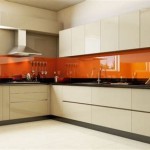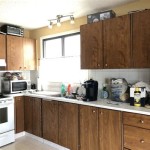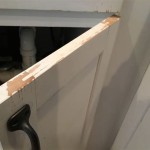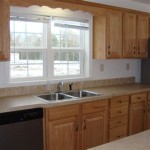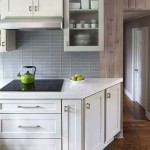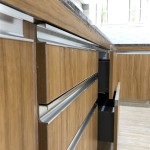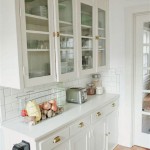Essential Aspects of Painting Old Painted Kitchen Cabinets
Rejuvenating old painted kitchen cabinets with a fresh coat of paint can transform the entire kitchen's aesthetic. However, the process requires careful consideration and preparation to achieve a professional-looking outcome. This article explores the crucial aspects involved in painting old painted kitchen cabinets, ensuring a successful and lasting result.
1. Surface Preparation
Thoroughly cleaning the cabinet surfaces is paramount. Remove any dirt, grease, or grime using a degreaser and a sponge. Next, sand the existing paint lightly with fine-grit sandpaper (120-150 grit) to smooth out any imperfections and enhance paint adhesion. Wipe away the sanding dust with a damp cloth.
2. Priming
Primer creates a barrier between the old paint and the new, ensuring better paint adhesion and coverage. Choose a primer specifically designed for painted surfaces and apply it according to the manufacturer's instructions. Allow the primer to dry completely before proceeding.
3. Paint Selection
Opt for a premium-quality paint designed for kitchen use, such as an enamel or latex paint with a semi-gloss or satin finish. These paints are resistant to moisture, grease, and wear, making them suitable for kitchen environments.
4. Brush or Spray Application
High-quality brushes or sprayers are essential for smooth and even application. Brushes offer more control, while sprayers provide a faster and more consistent finish. If using a sprayer, ensure proper ventilation and follow the manufacturer's instructions carefully.
5. Application Technique
Apply thin, even coats of paint, allowing each coat to dry completely before applying the next. For brush application, use a light, even hand and follow the grain of the wood. For spray application, hold the sprayer perpendicular to the surface and apply light, overlapping strokes.
6. Sanding Between Coats
After each coat has dried, lightly sand the surface with fine-grit sandpaper (220 grit or higher) to remove any brush marks or imperfections. Wipe away the sanding dust before applying the next coat.
7. Hardware and Finishing Touches
Remove hardware such as handles and knobs before painting. After the final coat has dried, reattach the hardware and apply additional finishing touches as desired, such as adding decorative trim or molding.
Tips for Success
- Ventilate the area adequately during painting and allow ample drying time.
- Use a drop cloth to protect the floor and surrounding surfaces.
- Test the paint color on a small, inconspicuous area first to ensure satisfaction.
- Consider using a paint sprayer for faster and more professional-looking results.
- Allow painted cabinets to cure for at least 24-48 hours before regular use.
By carefully following these steps, you can achieve a stunningly transformed kitchen with freshly painted cabinets. The refreshed appearance will enhance the kitchen's functionality and aesthetic appeal, adding value to your home.

Avoid These Mistakes How To Paint Cabinets That Are Already Painted Grace In My Space

Our Kitchen Update Phase 1 Painted Cabinets Modern On Monticello

My Painted Cabinets Two Years Later The Good Bad Ugly

How To Paint Kitchen Cabinets A Step By Guide Confessions Of Serial Do It Yourselfer

How To Make Old Cabinets Look New With Paint

Painted Kitchen Cabinets One Year Later The Palette Muse

How To Achieve A Super Smooth Finish When Painting Old Kitchen Cabinets The Happy Housie

How To Paint Your Kitchen Cabinets Houzz

Painting Your Kitchen Cabinets Is Easy Just Follow Our Step By Tutorial

How To Paint Kitchen Cabinets Budget Friendly Makeover

